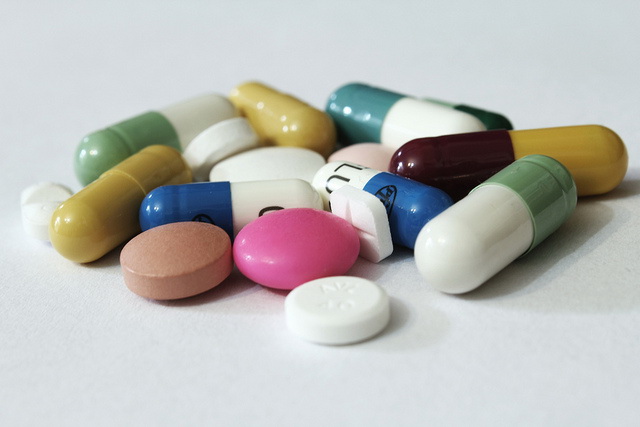A person may have a number of reasons for wanting to stop taking psychiatric medication – freedom from the dulling effect most psychiatric drugs cause, freedom from worry about long-term effects of the drugs, e.g. tardive dyskinesia (involuntary muscle movements), freedom from dependence on such powerful medications, or maybe the numerous side effects many psychiatric drugs bring on.
Whatever the reason, people have a right to free themselves from using medication they feel uncomfortable with or if they desire a better long term solution.
Quitting any medication requires support. Initially this must be from a sympathetic physician or psychiatrist, who should be helping to oversee any alternations in medication status. The person’s physician must be of a mind to support the requests for change and accept a person’s right to make this difficult decision.
Also of equal importance is the support from friends and family. People may be a little scared at first that these changes will do great physical and psychological harm, and so may need reassurance and information to put them at ease.
Finally, support may be needed from an outside counsellor. Counselling support is sometimes sought to help the person find accurate unbiased information about the medication and about any possible alternative options, but is usually needed to help the person adjust to the emotional and psychological effects withdrawal from medication can often include.
Steps to Quitting Medication
1. Find a supportive doctor who will work out a withdrawal schedule with you and monitor your progress.
2. If possible, ensure a stable living situation.
3. Rally support from friends and family and local organizations and find out as much as you can about the process so that you will be prepared for the withdrawal symptoms.
4. Arrange for an outside counsellor to be on hand should you require help with emotional and psychological issues.
5. Withdraw from the drug as gradually as you can. Your doctor will advise you on this. A 10% reduction per week is commonplace.
6. Don’t expect to feel much difference in the first few days. Understand that your body and mind are going through a difficult experience.
7. Make sure you get enough sleep. Difficulty in sleeping is a common problem, but it is important that you get enough. Use herbal remedies, massage and relaxation techniques to aid sleep and avoid using stimulants like coffee, sugar, chocolate, alcohol, or street drugs during this time.
8. Eat the healthiest diet you can to help your body purify itself. Vegetables, fruit, nuts, and grains are important; eat as little red meat as you can, and avoid junk food.
9. You will have more physical energy as your body gets away from the drugs. Exercise will help you stay calm, and will be very helpful in controlling your energy. Try exercise such as swimming, hiking, or bicycling, but do it gradually.
It cannot be emphasized enough that withdrawal needs to be done slowly. If withdrawal symptoms are ok after the first week, a further reduction will probably be suggested, and so on for the subsequent weeks. If a point is reached where an individual doesn’t feel ok, then there will probably be no further reduction in dosage until he/she feels they are able to continue.
Reactions
The time it takes for withdrawal symptoms to set in and their severity varies from person to person, and depends on how long you have been taking the drugs, your dosage, your overall health, your body weight, and so on. It must be noted that the symptoms of too-rapid withdrawal from psychiatric drugs include extreme nausea, anxiety, insomnia, restlessness, muscular reactions, and strange behaviour. In the case of minor tranquilizers and sedatives, the reactions to sudden withdrawal can be life-threatening. Therefore professional medical supervision is needed for the process of quitting psychiatric drugs.
Different drugs bring on different withdrawal reactions.
Listed below are some of the main classes of psychiatric medication, along with the withdrawal reactions that are most common with each of them.
Antidepressants and Neuroleptics
• flu-like syndrome with headache, muscle aches, chills, nausea, vomiting, diarrhoea, and loss of appetite
• muscular reactions such as uncontrollable rhythmic movements and tremors (these are more severe with neuroleptics)
• insomnia, emotional distress, feeling like one is “going crazy”.
Lithium
• less side effects generally than other classes
• insomnia, anxiety, irritability.
Minor Tranquillisers, Sedatives
• sudden withdrawal can result in life-threatening seizures; withdrawal must be very gradual
• seizures common in early stages of withdrawal
• other reactions can include flu-like syndrome (see above), muscle tics, restlessness, and anxiety
• withdrawal symptoms usually take a few days to develop, but can occur immediately and get worse during the first week.
Support
Finally, if you are a carer, family member or friend, what can you do to support a person withdrawing from medication? Below is a summary that may help –
1. Respect the person’s right to make his own choices.
2. Be informed about the process of withdrawing from psychiatric drugs.
3. Be familiar with the withdrawal symptoms so that you can stay clearheaded and not panic.
4. Realize that people who disapprove of what the person is doing may want to interfere with the process. Be prepared for that.
5. Remind the person to get enough sleep.
6. Make sure he gets enough to eat. Help him prepare food, as he may be too nervous to cook on his own.
7. Help him get in touch with other people who will support him.
8. Don’t be misled by the withdrawal symptoms, thinking that they are signs of his “illness.” Be patient; it takes time to withdraw from the drugs and adjust to life without them.
Under the correct guidance and with the appropriate support anyone can change their lives. Psychiatric drugs can be helpful for the short-term control of mental illness, but they do not cure, they only suppress symptoms. Long-term use has no real benefit, logic or place in today’s world, with the extensive and deep range of less harmful options available.
By finding a way to the causes of mental illness symptoms, we open up the potential for curing these problems from the root, naturally, gently and positively, and encouraging optimum mental health and a fulfilled life.
(Note: The information in this article is for information only and is not intended to replace the advice of a healthcare practitioner. Anyone seeking to withdraw from psychiatric drugs should seek such advice.)








